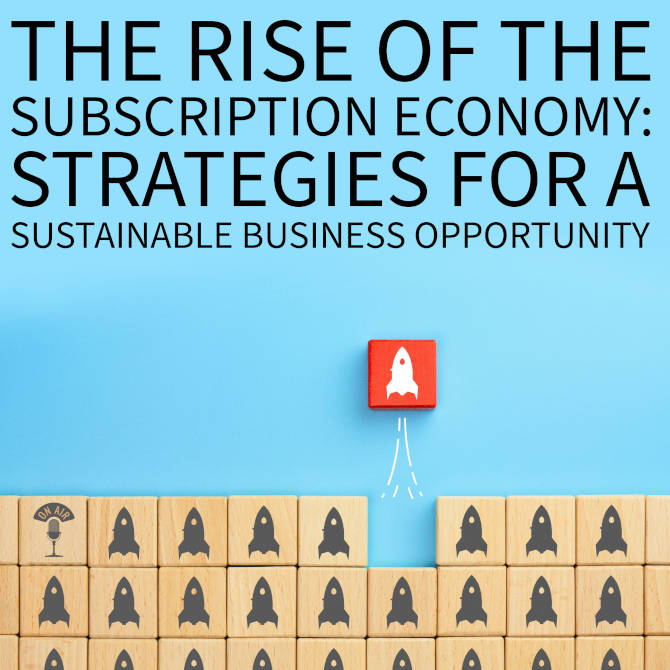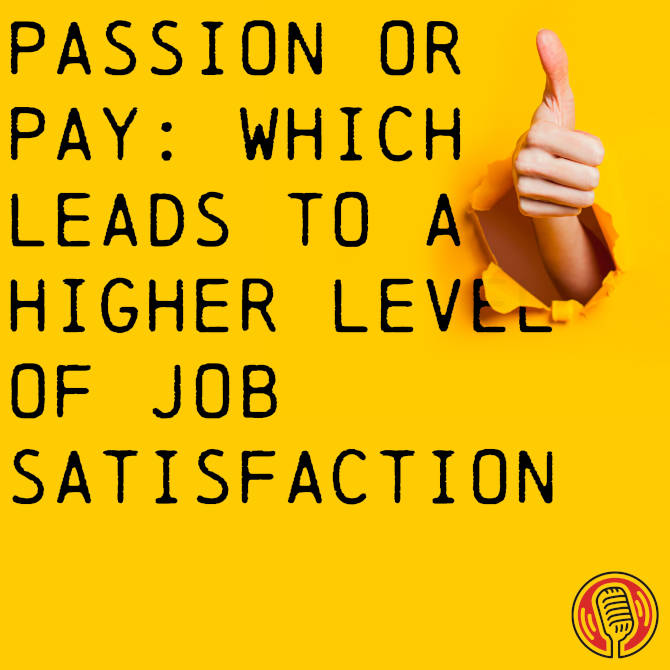Introduction to the Podcast Episode
Mark: I’m joined today by my delightful co host Jana and today’s subject will be an interesting one for both business people, entrepreneurs, and people just starting out on their life journey. Hello there Jana.
Jana: Hey Mark.
Opening Discussion on Career Choices and Satisfaction
Mark: Okay, now I’ve spent my life crossing many career paths and many people are amazed at how many different fields I’ve touched upon and many would say oh, a jack of all trades is a master of none, which is a sentiment that I think is absolutely absurd and factually incorrect as the original saying actually is a jack of all trades is a master of none, but oftentimes better than the master of one.
Now, over the years, I’ve levelled across many fields and done this through the skills I’ve learnt, and combining those skills has created these new career paths.
Now, for about a decade, the phrase following one’s passion to make success has become a key standard associated with earning money. And in a way, I agree with the phrase but also feel that it can be quite damaging to the idea of what it takes to become successful.
By no means is this a new idea and pretty much goes back to Aristotle and his theory on pursuing a life that is meaningful and fulfilling, which I’ve discussed in my previous episodes, the value of philosophy and business decision-making.
So if you get a chance, do check that one out. I’m not saying that it’s incorrect, and without a doubt, work is going to play a massive part of your life, and indeed, you should make sure you are satisfied with what you’re actually doing.
There’s really no point sitting at a desk for 20 years if you’re totally dissatisfied.
The Debate: Passion vs. Pay in Career Choices
What do you go for? Passion or pay? And which leads to a higher level of job satisfaction. This is definitely going to be an interesting take, being that I am a Gen X serial entrepreneur and Yana is a Gen Z and an up-and-coming entrepreneur. The different perspectives could seriously change the way we think.
Shall we start?
Now, Jana, you brought this subject to me and I think it’s a fascinating subject matter. That will be interesting to business owners and people starting out in life. So I think it would be great to hear your stance on the matter. Come on, passion or pay?
Jana’s Perspective: Choosing Passion Over Pay
Jana: Well, I must admit that I have been thinking about this topic quite often lately.
As a 21-year-old who’s been building her CV since the age of 15 and is currently working and studying full-time, I had to make an important decision. Two months ago, I decided that I wanted to move out of my parents’ house and live independently in a larger town where I felt I had more opportunities and the space to grow as an individual.
Now I’m a pretty stubborn and determined person. So my personal goal to make this happen was to be able to pay my own rent and bills without asking for any help at all, which is, in my eyes, just a normal thing to do at my age. So. I think that’s a perfect way to start off answering your question because as you can see, I was put in a pickle.
During my one-month stay in Novi Sad, I tried my best to get as many job interviews as possible, and I was able to land around 10, but I ended up declining all offers. The reason for this was I felt as though those positions just put me too much in a comfort zone filled with monotony. And I’m a person who enjoys being stimulated intellectually, so that didn’t work well for me.
Now, what I didn’t expect was to find a job that I’d love back in my hometown. And it included elements of everything that I enjoy doing, but the downside of it is that I’d have to move back, which made me feel as though I was just walking backwards, in a way. So, to answer your question, I ended up taking that job, which I was passionate about, even though it was back in my hometown.
And even though there were better-paying jobs in Novi Sad, which could have kept me in the town I enjoyed staying in, I chose passion over pay because it’s what felt right to me and because I stayed true to my core values. I believe that’s what it actually truly comes down to figuring out what it is that you really want and finding a way to do that, that feels right for you as a person.
But I would love to hear your opinion on this topic and to dive further into it.
Mark’s Experiences: Balancing Passion and Financial Realities
Mark: Okay. It’s interesting to listen to the way you actually looked at the situation. Now I’m going back to when I was a kid. And it was the same thing.
I’ve never, never asked a penny from my parents and they’re quite comfortably off and it’s always been focused on myself.
I’ve always had, you know, more jobs than people can imagine. So for me, that’s In a way, it was following a passion. And initially my passion was actually fashion. There’s a little poem there, isn’t there? And I did quite well. I still, I went to university, I studied, I paved for my own way by working in the evenings and all of that.
And I think it’s a really good thing to, you know, have behind you is that sort of passion to do things, but whether it’s right. over salary. Things change as you grow older. Yeah, definitely. Definitely start having kids and all of that basis and that really changes your mind on the salary base.
Jana: Of course, but I believe that the situation you’re in also determines the core values that you have and like they change over time as well.
So even though you do have to balance work and like what you enjoy doing. I think that you can stay true to your core values and at the same time provide for your family and do all the other obligations that you have to in order to live a comfortable life, to say the least.
Mark: Yeah. As I said, I’m a serial job taker. Yeah and, albeit that I make my own jobs, that’s, that’s how I do it, but everything that I do is what I’ve learned from.
Now, obviously I was pleased that you came on board here, and I think for a young lady at 21, this hopefully offers you an opportunity of learning and, and finding your true passion, because this isn’t going to be your first and last job, hey, you never know.
Jana: Yeah, of course.
Importance of Skill Development and Market Trends
Mark: We may work amazingly together and that’s it. That’s done. Yep. Um, my, my lifelong co-host. I think, you know, that you, you do have to contemplate and that’s where money, you know, you, you look at the base and say, okay, I’m really interested in doing this specific subject. It’s not paid as much, but actually that’s what I hopefully learn from it is actually the value provided in that position and where I can take it further.
So, When I sort of looked at job positions when I was working, it was all about what can I learn? So when I worked in a restaurant, it was how could I get into the kitchen and I had to become a washer upper and burn my hands to pieces in the washing up then start learning prep work and all of that process and
Then I started being a chef and a trained chef, which was an interesting thing, because at the same time, I was also studying fashion design, so I was doing the same things, and both elements have actually earned me money, and the fashion design.
I worked with Helen Story, Vivian Westwood, and the high street, I would sit and have coffee, and See all the people walking around wearing my clothes, which is quite that’s amazing for your ego.
You know, that’s absolutely amazing but when the market went down I had these other skills that I had to utilise and that’s when I started opening a nightclub up, because working in restaurants, you gain a skill there. And I think one of the greatest things actually is working as a washer-upper and building your way up.
You become quite hardened. So there I was able to move into say the fashion industry. And there’s a long story about the fashion industry, which we won’t go into today.
Now redundancies happened at a certain period and the market crashed. And I was given some money and I thought, what can I do? So I invested in a nightclub and that was fantastic.
It was great fun, but it was always keeping an eye on what the market was. And it wasn’t specifically down to me. You know, what, what, you know, what is, you know, what is my passion and passion changes, it was one of my skill levels.
What can I bring to the table? And I think this is where the big issue lies.
You know, you’re in a position where you can come back to your hometown, you know, you can stay with your parents. There’s not an issue there. They’re not going to go, okay, you’re 21 back off. They’re not going to say that.
And so you can use that as an opportunity and a stepping stone, but you’re always going to keep an eye on the market.
And this is one thing that I learned from the fashion industry is trends in the market and always see what is actually happening in the market. And. I’ve come up with suggestions that have made, you know, absolute millions. And then, you know, bringing video into financial services, introducing the first podcasts and all of that, this is all change.
And every single thing is an experience. And that’s where I say the passion lies. It’s not, it’s not sitting there and, you know, I said the other day to you, we were discussing this and I talked about, you know, the person interested in making matchstick houses. it’s a passion, it’s great, it’s fantastic, but where can they really take that as a business opportunity?
But, the aspect that they can look at is how meticulous they are at doing things. And that’s where it becomes interesting because somebody that is meticulous, there’s a place for them in a business. Because you need, say, quality assurance or something like that, that person would be brilliant because you know they have the patience to do that.
You know, we just started working together and I’m discovering more and more about you. And I think, you know, you’re an amazing young lady. You’re, you’re sassy, you’re very bright and intelligent, but I would rather you learn the skills that you can take on to go forward. Yeah. And salary comes, it really does come, you know, within three years time, you’ll probably be one of the highest paid people in your small town, which is a good thing.
So that’s my specific thoughts.
Jana: I agree with what you have to say. I do believe looking at the matchstick comparison that you made, we can take elements of the things that we’re passionate about and put that into building our skills.
But I believe that if we don’t have the initial passion, we won’t have the desire to work on those skills and then we won’t be able to do succeed or to develop them in a way that would benefit us in a workplace that we would like to join or which would with time support us financially, as you said.
Mark: So if, if we sort of talk about people’s passions Yep. And you, you’ve said, you know, learn from those specific processes. Now, talking like an old dog, I don’t watch TV. I haven’t watched TV for almost three decades and Neither of my children.
Jana: I don’t watch TV either.
Mark: Yeah, that’s it Majority of people will spend their time watching television and for me that is a learning period When I moved into development I would sit there and just code, code, code, code, code, and because there were no schools or anything like that, it was, I had to teach myself and that’s a rather interesting way. I couldn’t have gone to websites, now there’s billions of the damn things. So the learning thing is very important. And if somebody has a passion, learn it.
Jana: I agree. But I believe that it’s like an inside drive that has to push you towards that. Those people who are watching TV.
They are probably unsatisfied with the positions that they have, but I don’t think that they have the self-awareness to realise that they want to change something or that they should change something or that they even capable of it because most of them think that they’re just stuck with their nine to five job and that’s all they’re going to have the rest of their lives.
So, I think that you have to have that inside drive to push you to do, to make the change that will make you happier.
Mark: I must say, we don’t have anything against people that watch TV.
Jana: Of course not.
Mark: I think that would be a terrible thing to have. It’s just about utilising your time and time management and how to use it at the most effective moment.
You know, my son, he’s a professional gamer. And that’s, it’s interesting because my son always said, I like gaming. I like gaming as a lot of kids do. And I turned around to him and said, well, why not make it into a career? And we had a lot of kickbacks, absolutely loads. His mom was like, nope, there’s not a job in, in gaming.
And that always harked back for when I actually started building websites.
People were saying to me, that’s the most stupid idea you’ve ever come up with. You know, why are you giving up a restaurant to build websites? On the televisions, there was a thing called teletext. Yeah. And you push a button and you’d have this text coming up. And that would tell you the weather or book a holiday or the likes of that. And they would say “that’s what we have. We’ve got just teletext. Why do we need websites?”
Now we look at where websites are now, which is quite incredible. So that’s why I hoo hard everybody away from saying it’s the wrong thing for my son to do.
Now, he’s been a gamer for seven years, he’s travelled the world, um, he can play absolutely anywhere, and that really is his passion, which is beautiful. Of course. Uh, for my daughter, that’s slightly different. She’s, she’s more into the, sort of, wanting to become a dental nurse and all of that, so it’s a slightly different form of passion.
But interestingly, both those jobs can, they can go anywhere they like in the world, which is a good part. And the doors that will open for them are going to be vastly different, but they understand that they have to learn continuously.
Jana: Yeah, I’m aware of that. I study psychology and international relations and I’m aware that if I want to succeed in my career, because that is something that I’m interested in and also passionate about, I do love that.
I know that it’s something that I have to keep learning in and that throughout my entire career, I’ll have to advance my knowledge. So, that brings me again to the point that I’m passionate about it. I want to learn more about it. I don’t mind spending, okay, I do watch Netflix or something, of course, we all do, we, we all have a way that we want to just ease off and let our minds rest.
So I do spend time relaxing and all of it, but I also do dedicate a lot of my time towards learning and towards reading new articles, discovering new things that I wasn’t aware about and I think that I wouldn’t have that and I would spend most of my time like, Perhaps maybe even scrolling through social platforms for hours.
I used to do that, but then I realised that’s not getting me anywhere and it’s not something that can help me grow. So what I do is I catch myself watching and scrolling these platforms and I say, no, stop here. This isn’t what you want to do. This isn’t going to help you. This isn’t going to benefit you. And I put that aside and I grab a book or I research a topic that I’m interested about, or I start studying. And that’s just something that I do because I love doing that.
Mark: And now I’ve got many a sort of hobby on the side and I love carpentry. There’s a secret I’ve let out. Nobody knows this. I absolutely love carpentry and I love making things, but I don’t have time for it. I’ve got all the tools. I could build a house with all my tools, but it’s You know, you’ve got to decide on one sort of level and it helps as well. You know, you learn that sort of thing, put up shelves and the walls and all those sorts of things. So it does help. It is a skill that helps in the sort of long term.
Now we go back to the question of passion and salary. Now the younger generation to myself, so the Gen Z’s and maybe the latter end of millennials, there’s too many statements on do what you’re passionate about. And I think there’s no focus. This is my personal opinion that there’s no focus for young people and they just think they’re going to go out and earn a ludicrous amount of money just for being who they are.
Now we take, you know, you’re sitting opposite me, so I can take you as an example. I was inundated by a lot of CVs. I was amazed at how much interest was in this specific job. Now, what made me interested in you, and actually it wasn’t your portfolio, it was your CV and the way you wrote your CV, the information you put on there.
And when I spoke to my business partner, I said, this is the girl I want. And that’s because I can see that you have more skills that your portfolio didn’t explain in the slightest. But your CV explained those skills immensely, and you’re very much an asset now, to me, without a doubt. So, how do we tackle people that aren’t as, what’s the word I’m looking for? Advantageous as yourself who are walking around lost.
Jana: I think that’s where you have to find something that you’re interested in, and that you keep exploring ways in which you can make an earning from that.
For example, you said following those trends in fashion. You can do that now with technology.
You can search for different terms such as SEO or data analysis and just research in general, those are things that are getting more and more developed as time progresses, and it’s something that people should look into.
I know that I was completely unfamiliar with the terms, and then when I started researching more, I realised how prevalent that is, and how it’s ongoing, and how people are developing new jobs, and based on that, I think that people shouldn’t be discouraged, because there is a growing platform where people can discover new positions and hear about jobs that they didn’t know existed at all.
For example, I’m a content specialist here and my mom never heard about that position. It was something that she was very interested to hear about. And she was surprised to realise how ther were many different opportunities that she wasn’t even aware of.
So I think that the first place to start, if somebody is unhappy with where they’re at, is to start researching and start seeing which elements from their passion they can take.
To discover a new position where they can grow skills that are, that are looked for in the market. So I think that’s a good way to start.
Mark: So, okay. So you’ve, you’re now talking about building your skills and I’m going to take you out of the equation because we’ve discussed you way too much now. We know you’re a bright spark.
Jana: Thanks.
Mark: And I want to put you into the situation where you’re on social media, and you are hearing the likes of Andrew Tate. You know, some people love him, some people hate him. A lot of young men follow him. Yeah. And that they find him, you know, pretty powerful. However, you know, is he right in flashing money at people?
This doesn’t reset. People will go, oh, I can, I can do drop shipping, I can do this, I can do that. I think maybe in a mental masculine state there’s benefits but then we look at all the other people out there saying how easy it is to make money, which puts unexpected expectations on young people.
Jana: Yeah, that’s true because I can see how the try and fail method affects people’s mental health because they do try to Listen to the TikToks, which say:
“Oh, I make 10K in a week. If you follow my rules, then you can do the same.”
And it is discouraging and disappointing when you don’t get to that level and when you don’t receive the outcome that you were expecting, I think that that is something that social media has done wrong because those people, they have put time and effort into building that skill. Some of them did get lucky, of course, they admitted themselves.
Mark: It’s okay. Let me, let me sort of rephrase that then.
Where is the passion in that?
Jana: Well, that kind of brings me back to the idea of core values, combining core values with passion. Somebody’s core value is just, it’s money in a way. Their core value is more materialistic, which shouldn’t be a core value, but that’s something that they believe fulfils them.
So that’s also a drive that should push them. So I think that example that you gave does combine passion and pay a lot. So they can’t be differentiated in that circumstance, in my opinion.
Mark: Well, no, because the passion there is just money. So if I, if I turn around to you and say, okay, I’m going to pay you 200, 000 pounds a year to sit at a computer and put in data, that’s a, that’s a lot of money.
Jana: It is. But it depends on my personal circumstance, if I’m going to accept it or not.
Mark: We’re taking you out of the equation, remember.
Jana: I’m not talking about myself, I’m talking about people in general, if they feel as though They can’t follow their passion or build matchstick mobile phones, then They’re just going to accept the job Until they’re able to stand on their own two feet and do something that they are passionate about
Discussing Challenges and Perspectives for Young People
Mark: So, okay. So if we’re talking about these individuals, how can they sort of overcome the challenges when pursuing their passion?
Advice for Youth: Finding Drive and Purpose
Jana: My suggestion would be not to be afraid to try and I always remember this post on Instagram where people say, okay, my 30 likes may not be much, but if 30 people were to enter my store right now, I would be completely overwhelmed. So don’t be discouraged by the amount of people that are viewing what you’re posting, but be motivated by the quality of people that are approaching your site.
So what I’m trying to say is if five people find you valuable, I think that’s also a good drive to push you to go forward and to say, Hey, I’m cheering for you. Like, go on, you can do this.
And there always will be times when you feel as though you’re not making any progress, but if you just keep pushing through and that’s something that you really are passionate about and you’re working on building your knowledge and listening to the market and following the trends, but also staying true to you, I think that it is something that is really beneficial.
So, Yeah, that’s, that’s something that I would say would be good to do.
The Role of Value Proposition in Career Success
Mark: Okay, you’ve actually brought in a subject that I quite like there, and that’s value. And we’ve, we’ve done many podcasts on value propositions. So you’re saying that they need to provide value. And how do they gain that value?
Jana: Well, that’s something that you’ve talked about in the past. So, if anybody is interested in hearing more about that,…
Mark: they can go to the podcast and actually listen to that. No, I think it’s important. You’ve, you’ve actually, you’re answering your own questions over this whole conversation, which I’m enjoying thoroughly. And, you know, you provide value through your knowledge base, through your analytical thinking process.
But the key there was they have to add value. And that’s where people are forgetting. They’re, they’re looking at the salary base. They’re saying that the salary base that they’re going to be earning a million in a month is their passion, which is actually not their passion. Cause they’re just looking at that money.
Jana: Yeah. It’s an arbitrary goal that doesn’t lead anywhere.
Mark: It really is. Yeah. So we’ve got, we’ve got to think of all, all of ourselves as providing a value proposition. So providing a value proposition is, you know, my one is I build websites, e-commerce sites. I have a very strong background in many other areas that I can bring into the conversation and help people build their businesses to, to multi-million pound businesses. And I think that’s where I bring value in.
And I think the younger generation needs to start thinking on that basis and not thinking about dropshipping.
They really need to focus on what value can I bring to somebody. You know, that’s, that’s what I said. I brought you on because you provide value. And to me, that’s absolutely key.
You know, there were some very talented CVs and portfolios that were incredible. And that’s not putting you down on that basis. No, not at all. They did not offer the value proposition you offered. And even in the interview stage, they didn’t offer that base.
And I think that’s a really important thing to take in mind for anyone, you know, whether you’re running a business. And this is why I said earlier that it’s an interesting sort of podcast because it’s not solely about young people. It is about business as well. And it’s about entrepreneurs understanding how they can utilise their sort of skill range to build their businesses and for young people to focus on sort of new things and maybe find their specific passions.
We sort of mentioned when we were talking to each other that I disagree on the Gary V sort of base and you know, Gary v’s an amazing chap. And I think everybody should sort of listen to him, but it doesn’t mean you have to agree with everything he says, and I don’t agree with him.
Just follow your passion. Follow your passion. Follow your passion.
I just, I just don’t agree with that. I think it’s following your skillset that leads to your passion and I’m, I’m very sort of passionate about my job, um, and you’re passionate about your job as well, and you have goals in life, and that’s the key. You’ve got a goal set out, you’re saying, right, I’m setting a goal for the future, and every business has to set a goal, and you’re saying, right.
You know, my business is starting here and I want to be able to take it to the next level. How am I going to get to that level?
Now, at the moment, there’s a lot of chatter saying goals are pointless, never set goals.
Again, that’s something I disagree with. You know, you’ve got to say, if you’re going to do a sales quota, you’ve got to say, right, I’ve got to match this million-pound sales quota by the end of the month, or I’m not doing my job properly.
But how do you get that sales quota? You’re setting yourself little tasks, utilising the skills that will bring you to that specific level.
Now, how important do you think it is to have a sense of purpose in your work?
Do you think that a sort of high salary can compensate for the lack of that purpose?
Jana: I don’t think that in the long run, a high salary can compensate for it because there will be that underlying… Just the idea that you didn’t accomplish anything in your life, even though you are comfortable with your financial situation, in the end, you’ll just lack that purpose, that value that we’ve been mentioning this entire time.
There’ll be nothing that you can specifically look back to and say, wow, I’m proud that I did this and feel happy about yourself. You’ll be happy about the finances that you have, but that’s not something that can replace feeling satisfied with yourself as a person and what you brought to the team.
Mark: So what would you say to yourself if you were looking at yourself?
Jana: Right now?
Mark: Yeah.
Jana: I would say that I’m very proud of the hard work that I’m putting in, that I shouldn’t be too hard on myself and too self-critical because that leads to a feeling of being overwhelmed and it leads to burnout quite quickly. But I should take my time and just keep on going.
Mark: There was, when I was selling water filters,
Jana: Is there something that you haven’t done?
The Impact of Mentorship and Learning from Mistakes
Mark: No, I’ve pretty much done everything. And I’ve mentioned this chad before Gavin Bain, who was my mentor. And I think it’s, it’s great to have mentors in life and he said, always charge everything like a rhinoceros because you won’t break through the wall otherwise.
So you have to focus and charge like a rhinoceros. If I was to… see, I was very lucky. It’s, it’s, I can’t really say if I was to talk to my 21-year-old self because he became my mentor when I was 21 and I met some phenomenal motivational speakers and all of that. You know, with the likes of Zig Ziglar and Stephen Covey, all of them.
And, you know, he even went on stage at Wembley Arena in front of 10, 000 people. Wow. And because Gavin insisted, you’ve got to, you know, face your goals and you’ve got to tackle it like a rhinoceros. And boy, was I scared, but when you get a standing ovation of over 10,000 people
Jana: That’s amazing.
Mark: Amazing is an understatement.
And I see that you’ve actually, you know, you’ve spoken on stage to people as well, which I’m interested to know more about and what brought you into that sort of situation.
Jana: Well, I have to thank my dad for that in a lot of cases. He’s the one who motivates me and inspires me because he started playing the guitar at a very young age so he would have gigs in front of large crowds of people.
So that’s something that I’ve always looked up to and it’s something that inspires me so whenever he gives me an opportunity to do something new I always grab it because I’ve learned that if I don’t grab it, I’m just gonna be wondering what could have happened if I did.
So he has kind of given me the initial drive to always do something new, and that’s led me to different experiences of being able to travel around the world, holding different workshops for youth and just trying to teach others in what ways they can contribute to society, how they can improve their mental health, what they can do to contribute to youth policies. So, it’s just that initial feeling that my father built into me, kind of, that keeps pushing me.
Mark: So we’ve both discussed something very similar, is mentorship.
Now, your mentorship being, you know, your daddy, mine being Gavin, and I think that’s really important. And I think any business owner that’s here, that brings on a young person.
Instead of when they do something wrong and have a go at them, use it, utilise it as a learning stage. I think making mistakes is absolutely imperative for any person, even when you’re old, you need to make mistakes because you learn from that, especially within business.
So treat your staff as you as the mentor, but also accept it the other way around. You can learn a lot from your staff because they’ve had different experiences and I think, you know, it has to be reciprocal and dialogue if you actually utilise more of a, the old fashioned top boss do as you’re told.
Then, the team member’s never gonna find any passion in their job in the slightest.
Concluding Thoughts: Cooperation vs. Dictatorship in the Workplace
Jana: Well, I’ll just conclude by saying that it’s more of a cooperation than a dictatorship. So, if you want your team to grow, then you have to be willing to grow with them and learn alongside them.
Mark: That’s very true. Very true indeed.
Yeah. I said to you the other day, you created an Instagram post and I said to you, Oh, you need to do those for us as well. And you just jumped at it. Yes, I’ll do those.
Jana: Of course.
Closing Remarks and Invitation for Audience Interaction
Mark: I’d love to do those. I’m going to do those, which that’s the attitude I love. And any business should love to have that attitude in their business.
Anyway, I think we’ve covered enough, don’t you?
Jana: Yeah, I’d say so.
Mark: On the subject. So what are your thoughts out there? Passion or salary?
Well, you can leave your comments and likes and, you know, what do I say?
Jana: Yeah, just free to contact us if you have any other opinions. We’d love to hear them.
Mark: So this is Mark and Jana signing off.
Bye bye now.
Jana: Bye bye.











